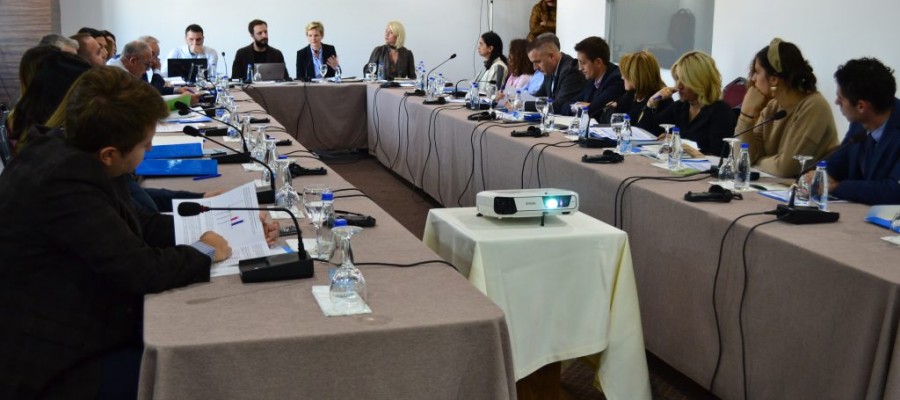Kosovo: Multi-stakeholder dialogue on NGOs’ access to financial services

Oct 29, 2019, Pristina, Kosovo: Research conducted among its members by Kosovar NGO umbrella organization CiviKos points to the fact that, in the NGOs’ experience, ‘bank derisking’ was pervasive. Derisking is interpreted as the practice of financial institutions (banks) restricting access to or increasing the threshold for their services. In Kosovo, this was taking the form of:
• the closing of bank accounts without prior notification,
• higher maintenance fees for NGO accounts as opposed to individual or corporate accounts (sectoral inequity), and
• unusual due-diligence requirements (resulting from conflation of the ‘beneficial owner’ with the founder of the organization rather than the person legally authorized in statute).
A multi-stakeholder dialogue was convened by CiviKos (in collaboration with ECNL and ICNL, and funded by SIDA, with the contribution also of Coalition member Human Security Collective) to discuss some of these issues. In attendance were NGOs (including a few who were part of the research) and representatives of the Central Bank, the Financial Intelligence Unit, the Ministry of Finance, the Ministry of Public Administration and the Banking Association. This was the first such multi-stakeholder dialogue – with the involvement of NGOs – on this topic in the country. Recommendations included:
• continuing with the multi-stakeholder dialogue started here
• awareness-raising and capacity building on these issues for NGOs (drivers behind AML/CFT regulations, compliance requirements and advocacy strategies)
• clarity of guidance from the Central Bank
• Central Bank ensuring that there is parity of information different banks request from NGOs
• banks ensuring that information requested is tailor-made for the sector (NGOs should not be treated like SMEs)
• recognition by banks of the legal representative of the organization (as also registered with the Ministry of Public Administration)
• harmonization of the monthly maintenance fee
• creation of an ombudsperson role
• more risk-sharing among stakeholders, so that all the risk is not borne by the NGOs. For the full report of the event, see here.




